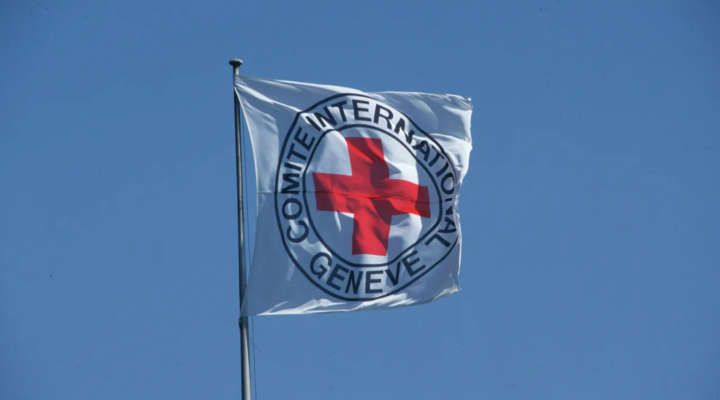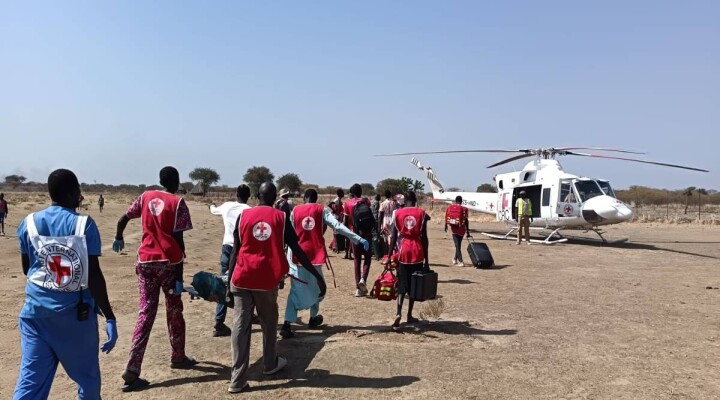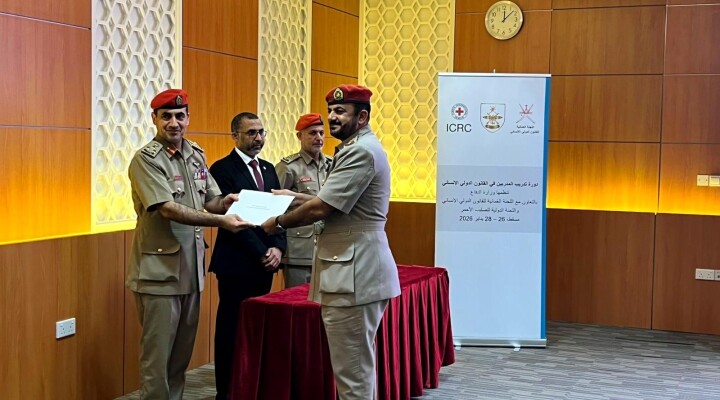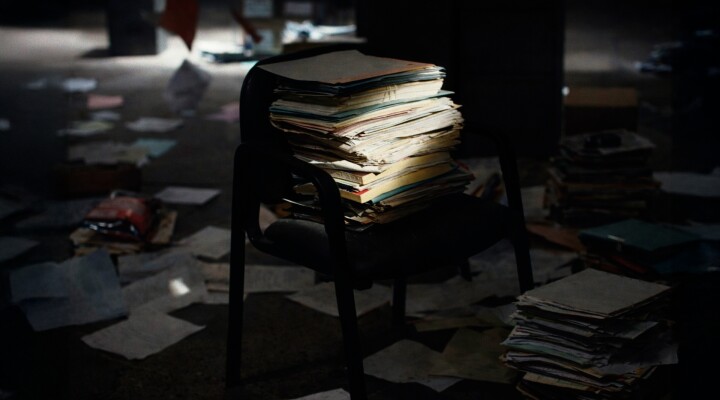ICRC Director of Operations in South Sudan: Only sustainable peace can lift people out of crisis
“Past experience in this country has shown that only sustainable peace will bring stability and lift the country out of this tremendous crisis they have been going through since 2013,” said Dominik Stillhart, the global director of operations for the International Committee of the Red Cross (ICRC).
South Sudan is a conflict characterized by grave violations of international humanitarian and human rights law committed by all sides of the conflict, where civilians are not only caught in the crossfire, but targeted.
“We have seen massive violations of international humanitarian law, including widespread sexual violence,” Stillhart said. “And what is really the hope of every South Sudanese person is that the peace agreement that was signed is going to be implemented.”
Families are trapped in a cycle of violence and displacement while they anxiously wait for peace and stability. Health care facilities are often looted and destroyed, while untold thousands of children are being deprived of school and many are separated from the families.
If the situation improves my children can have a better education,” said Acholy*, a woman who lives in a remote part of Unity State. “We can stay without running to the swamps all the time. I wish for stability.”
The conflict has been particularly brutal on women. They are left to fight for the survival of their families, fleeing with their children and foraging for food.
“If life goes back to normal, now if peace is coming, everything will be ok,” said Mary*, who has been displaced multiple times as a result of fighting. “We will stay home without running to the bush. We will not suffer from hunger and suffer for food. You will get what you need at home. This is what we need.”
SHOTLIST
Location: South Sudan (multiple locations)
Length: 04:21
Format: HD H264
ICRC ref: AV917N
Date: August 20-24 (Unity State), August 27-30 (North-western South Sudan)
Copyright: ICRC access all
Location: Medical facility in north-western South Sudan
00:00-00:18: Looted clinic
Location: Remote area of Unity State
00:18-00:29: Internally displaced persons (IDPs) outside shelters (including Acholy* below)
00:29-00:41: Inside abandoned and looted school
00:42-00:53: Outside abandoned and looted school (wide shot)
00:54-00:59: Child walks through corridor of abandoned and looted school
01:00-01:20: IDPs line up to receive food dropped by ICRC aircraft
01:21-01:32: ICRC airplane drops food
01:33-01:43: People collect bags of food dropped by airplane by the ICRC
Location: Wau, South Sudan
SOUNDBITE, DOMINIK STILLHART, ICRC’s global director of operations
01:44-02:12: South Sudan is at a crossroads at the moment because we have just seen that there is a new peace agreement that was signed recently. Past experience in this country has shown that only sustainable peace will bring stability and lift the people out of this tremendous crisis they have been going through since 2013.
02:13-02:39: Millions of people have been displaced by the conflict here. 2.5 million refugees. 2 million people have been displaced. We have seen massive violations of international humanitarian law, including widespread sexual violence. And now what is really the hope of every South Sudanese person is that the peace agreement that was signed is going to be implemented.
Location: Wau Teaching Hospital
02:40-03:00: Dominik Stillhart visits Wau Teaching Hospital, which the ICRC supports and provides trauma surgery
03:01-03:23: Family in a shelter with food provided by ICRC aircraft
SOUNDBITE, Acholy*, Woman in remote part of Unity State
03:24-03:45: If the situation improves my children can have a better education. We can stay without running to the swamps all the time. I wish for stability.
SOUNDBITE, Mary*, Woman in remote part of Unity State
03:46-04:21: If life goes back to normal, now peace is coming, everything will be ok. We will stay home without running to the bush. We will not suffer from hunger and suffer for food. You will get what you need at home. This is what we need.
*Names changed to protect the identity of those interviewed
For further information, please contact:
Erika Tovar, ICRC Juba (Spanish, English), +211 912 360 038
Crystal Wells, ICRC Nairobi (English), +254 716 897 265
Follow the ICRC on facebook.com/icrc and twitter.com/icrc



